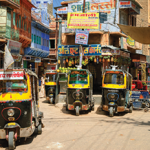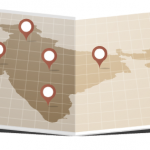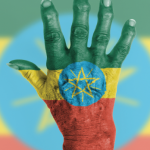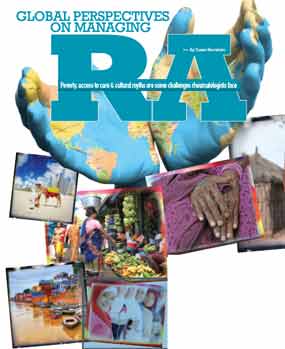



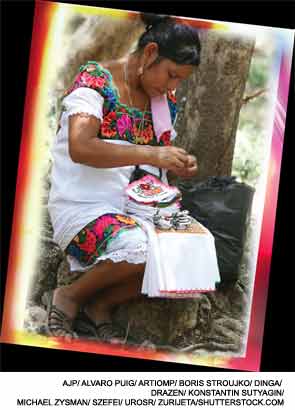
SAN DIEGO—Rheumatologists in developing economic regions often face daunting barriers to the provision of basic patient care. In many parts of the world, poverty makes it nearly impossible for rheumatoid arthritis (RA) patients to afford drugs or even rail transportation to a distant clinic.
In Latin America, Africa, the Middle East and India, healthcare professionals are working together to facilitate better access to medications and to create RA-specific patient registries. Regional rheumatology associations are also publishing RA guidelines that take their area’s unique social, economic and demographic challenges into account, said three rheumatologists who spoke at the 2013 ACR/ARHP Annual Meeting. (Editor’s note: This session was recorded and is available via ACR SessionSelect at www.rheumatology.org.)
Rheumatologist Shortage
In Latin America and the Caribbean, rheumatologists collaborated through the Pan-American League of Associations for Rheumatology (PANLAR) to identify six major social problems causing barriers to care, said Jose Antonio Maldonado-Cocco, MD, consulting professor of rheumatology at the University of Buenos Aires School of Medicine, Buenos Aires, Argentina. These included poverty, unemployment, deficiencies in public health, problems in education, socioeconomic exclusion and crime. RA affects about 0.4% of the total population in Latin America. “Ethnic heterogeneity has an impact on prevalence,” said Dr. Maldonado-Cocco, and “creates differences in the clinical expression in relation to genetic factors.” Depending on their ancestry, including descent from indigenous American populations or immigration from Europe or Africa, Latin American RA patients may express a wide array of phenotypes.
In a region marked by poverty, “at least 5,000 specialists are still needed” to meet the World Health Organization’s care standard of one rheumatologist for every 100,000 people, Dr. Maldonado-Cocco said. Low awareness of rheumatic diseases contributes to a dearth of economic and public health policies to improve access to care, he added. “RA is unrecognized as a public health crisis. The public and mostly healthcare administrators are unaware of RA as a catastrophic disease.” Primary care physicians have poor knowledge of RA, causing a delay in referrals to a rheumatologist that leads to a delay in treatment to control disease activity, he said.
In 2006, PANLAR and the Grupo Latinoamericano de Estudio de Artritis Reumatoide (GLADAR) published the first position paper on pharmacologic treatment for RA patients in Latin America. New guidelines may help existing rheumatologists make better treatment decisions to help their patients improve quality of life. In Latin America, use of biologic agents is relatively low among RA patients, around 6.4% according to one study, mainly due to cost, he said. “For the average RA patient, biologic therapy would not be cost effective. There would more [quality-adjusted life-year] scores, but at a much higher cost” than traditional disease-modifying antirheumatic drugs (DMARDs) or corticosteroids, Dr. Maldonado-Cocco said.
